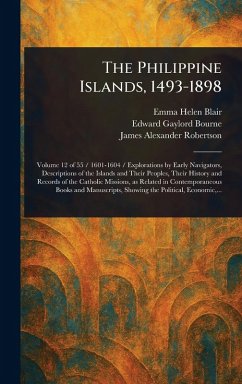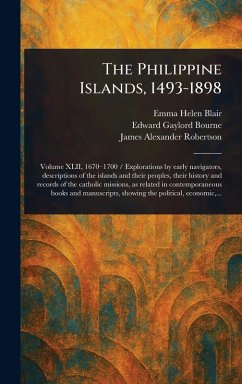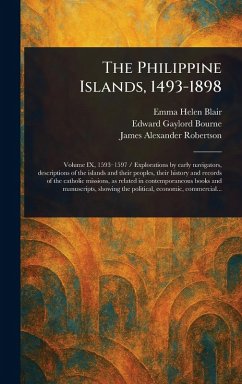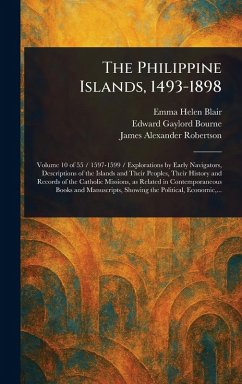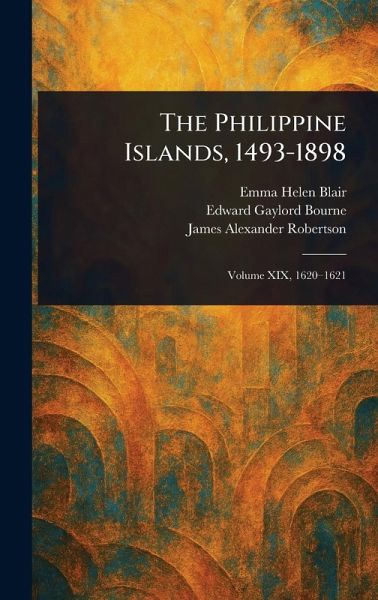
The Philippine Islands, 1493-1898
Versandkostenfrei!
Versandfertig in über 4 Wochen
30,99 €
inkl. MwSt.

PAYBACK Punkte
15 °P sammeln!
Delve into the tumultuous history of the Philippines during its colonial period with "The Philippine Islands, 1493-1898, Vol. 19, 1620-1621." This meticulously compiled volume offers a unique glimpse into the 17th century, exploring the region's complex relationship with Spain and the broader forces of colonialism. Part of a comprehensive series, this book sheds light on the events, challenges, and cultural exchanges that shaped the Philippine Islands. Focusing on the years 1620-1621, this collection of historical documents illuminates the period following the demarcation line of Alexander VI....
Delve into the tumultuous history of the Philippines during its colonial period with "The Philippine Islands, 1493-1898, Vol. 19, 1620-1621." This meticulously compiled volume offers a unique glimpse into the 17th century, exploring the region's complex relationship with Spain and the broader forces of colonialism. Part of a comprehensive series, this book sheds light on the events, challenges, and cultural exchanges that shaped the Philippine Islands. Focusing on the years 1620-1621, this collection of historical documents illuminates the period following the demarcation line of Alexander VI. Explore themes of exploration, governance, and the interactions between the Spanish colonizers and the indigenous populations. A valuable resource for anyone interested in Philippine history, Spanish colonial history, or the broader history of Southeast Asia and Latin America, this volume provides essential primary source material for understanding a pivotal era in world history. This work has been selected by scholars as being culturally important, and is part of the knowledge base of civilization as we know it. This work is in the public domain in the United States of America, and possibly other nations. Within the United States, you may freely copy and distribute this work, as no entity (individual or corporate) has a copyright on the body of the work. Scholars believe, and we concur, that this work is important enough to be preserved, reproduced, and made generally available to the public. We appreciate your support of the preservation process, and thank you for being an important part of keeping this knowledge alive and relevant.








